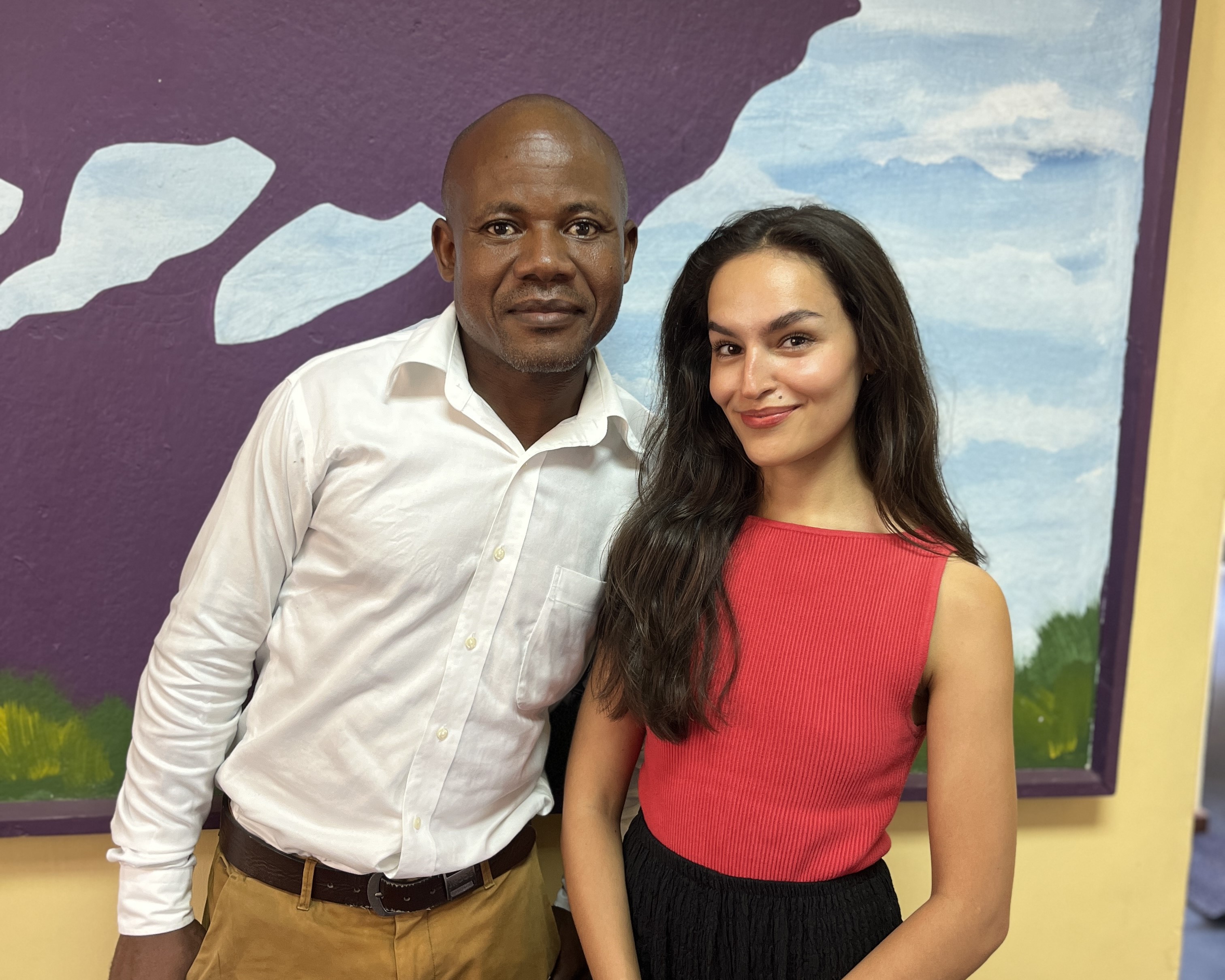Rebecca Priti Foster, a Harding Distinguished Postgraduate Scholar in the Department of Geography and Department of Architecture is learning Chichewa - one of the national languages of Malawi.
She is supported by funding for ‘Difficult Language Training’ awarded by the Economic and Social Research Council (ESRC) to students who need to acquire or develop a working ability in a difficult language to conduct fieldwork for their research.
Rebecca, who will research energy justice, is taught in country by Mr Chingwalu, a professional language teacher and Malawian farmer.
She said:
“There are less resources for Chichewa learners compared to other languages. Being based in Malawi enables me to immerse myself day-to-day in the language as well as complete a formal language course.”

Rebecca is taught weekly by Mr Chingwalu at The Jacaranda Cultural Centre in Blantyre where she receives one-to-one tuition tailored to her ability and targeting key vocabulary useful to her research.
She said:
“My lessons are enriched by real-life stories and explanations of the origins of words and phrases.
For example the dual meaning of the word ‘Lolemba’ (Monday) which translates to ‘the day of writing’. This term originates from the colonial era when workers were registered for weekly employment each Monday.”
A Bantu language, which Rebecca says has a ‘musical quality,’ Chichewa traces its origins back to mid-fifteenth century when the Chewa people migrated from the lower Congo Basin to the shores of Lake Malawi.
Chichewa is considered a difficult language from a western perspective for several reasons - for example as a tonal language pitch changes can alter word meanings.
Rebecca will research the lived experiences of low-income women living insecure access to energy in Malawi, where less than 11 per cent of households have access to electricity from the grid and most rely on biomass fuels such as charcoal and firewood.
She said:
“Women are typically responsible for household tasks such as cooking and heating and therefore bear the brunt of unpaid labour. Such labour consumes time and effort, which subsequently limits educational and economic opportunities.”
Women may also be more susceptible to respiratory illnesses caused by the reliance on biomass fuels.
When she has completed her language training, Rebecca will remain in Malawi for a further 8-12 months to conduct fieldwork research through interviews, focus groups and by recording participatory digital stories.

Her research will ultimately capture the needs of low-income energy users to inform policies that promote accessible and affordable energy access and equitably shift energy consumption towards sustainable sources.
She said:
“Learning Chichewa has been vastly beneficial. My understanding of local traditions, values and daily life has helped me build more meaningful and respectful relationships.”

